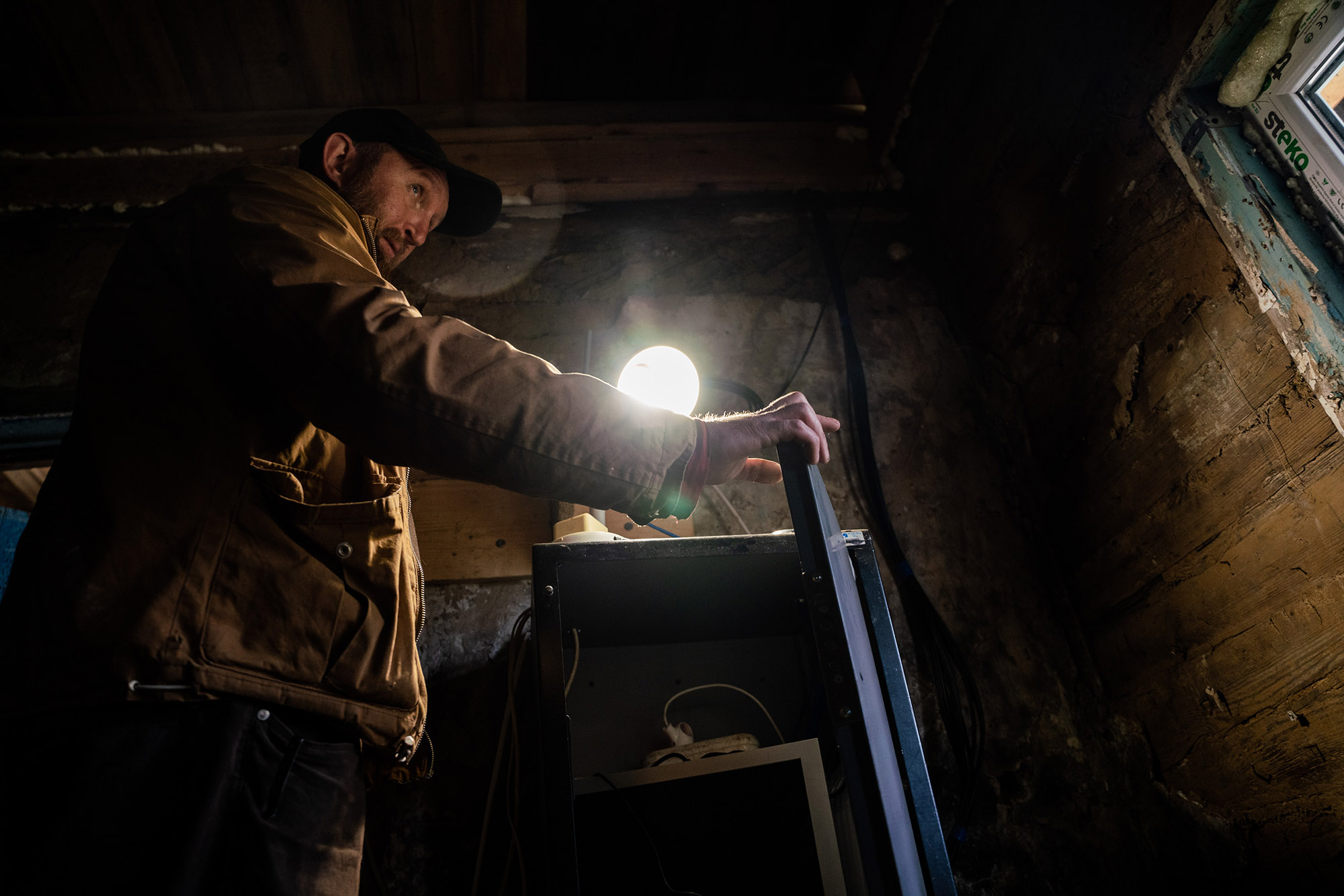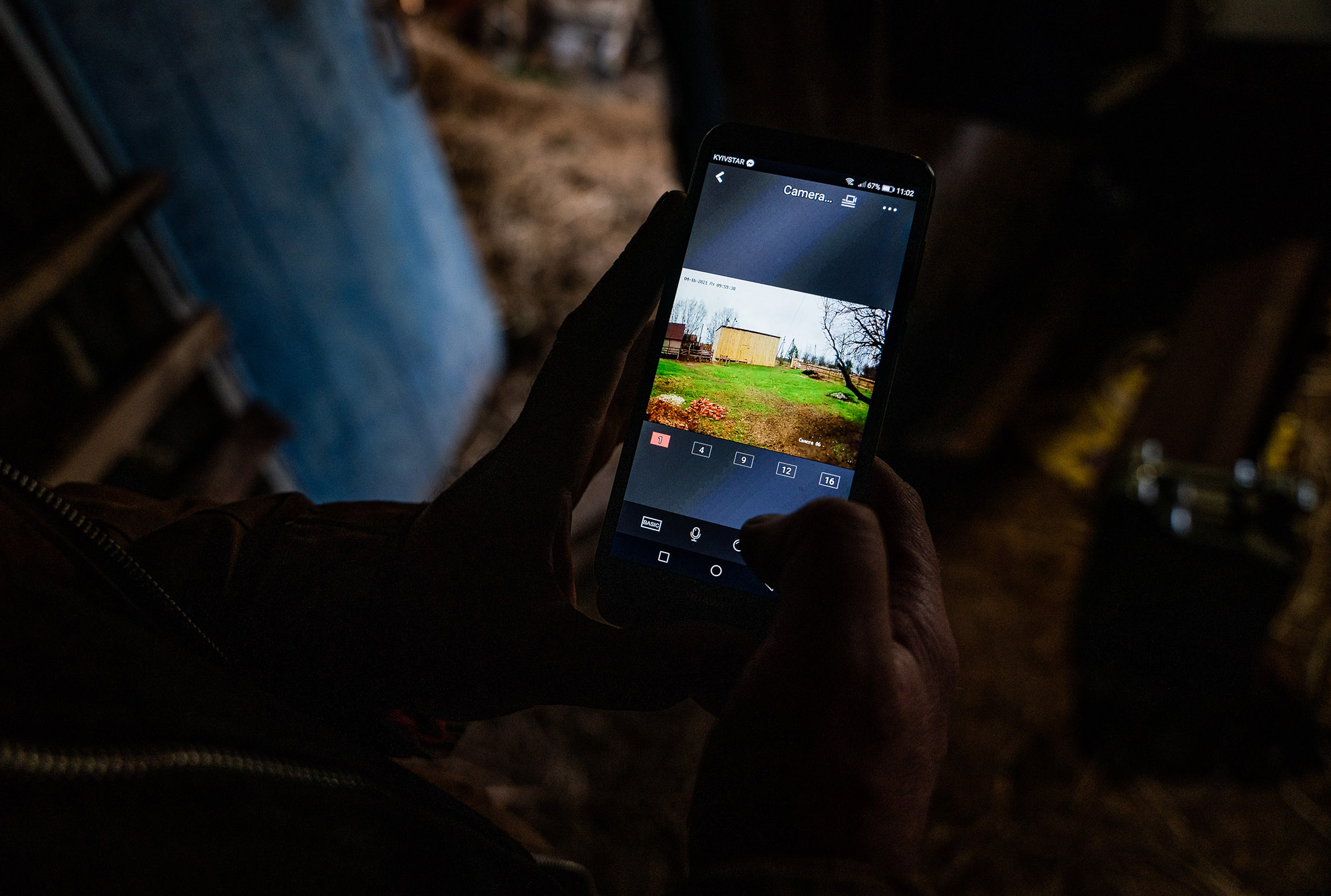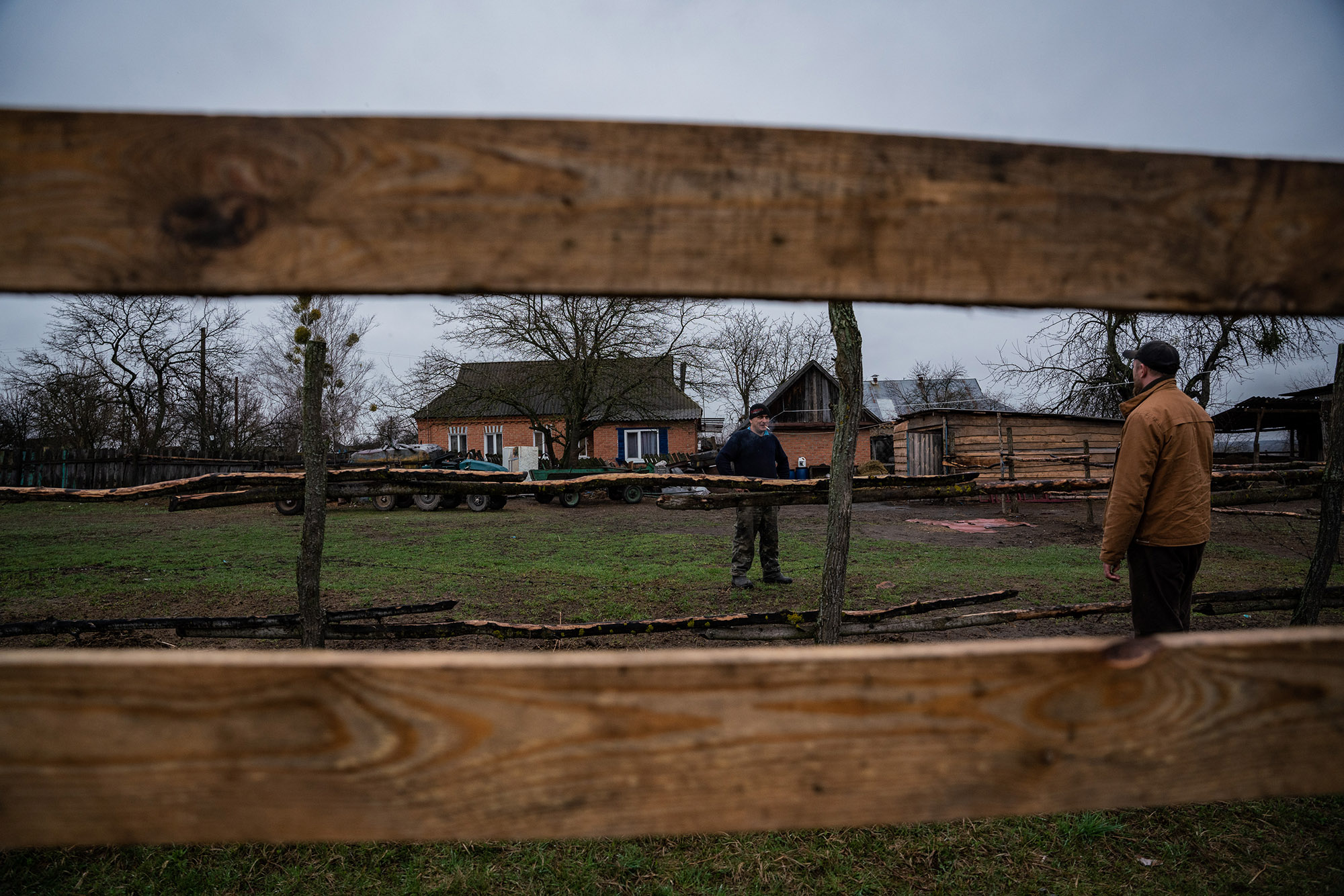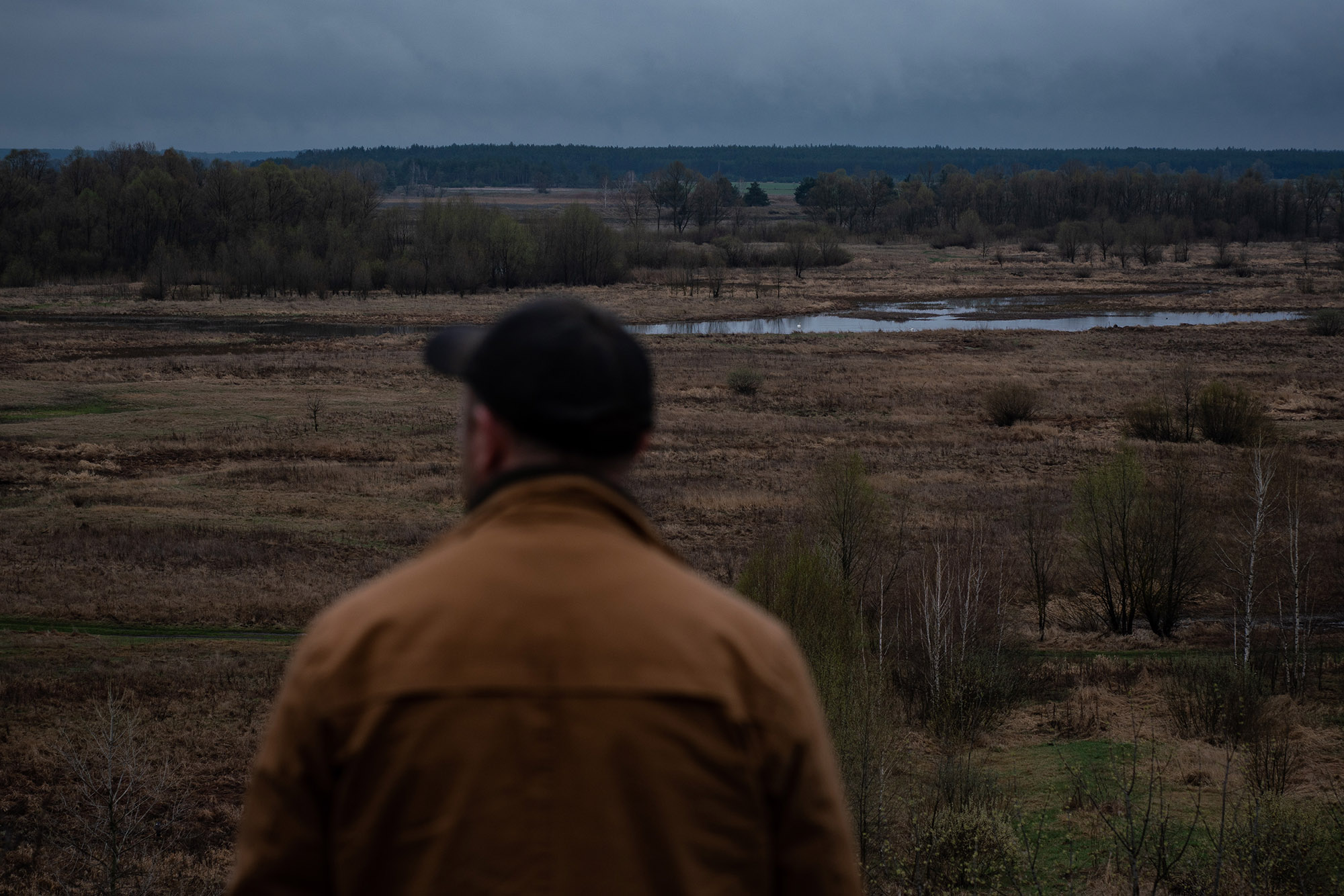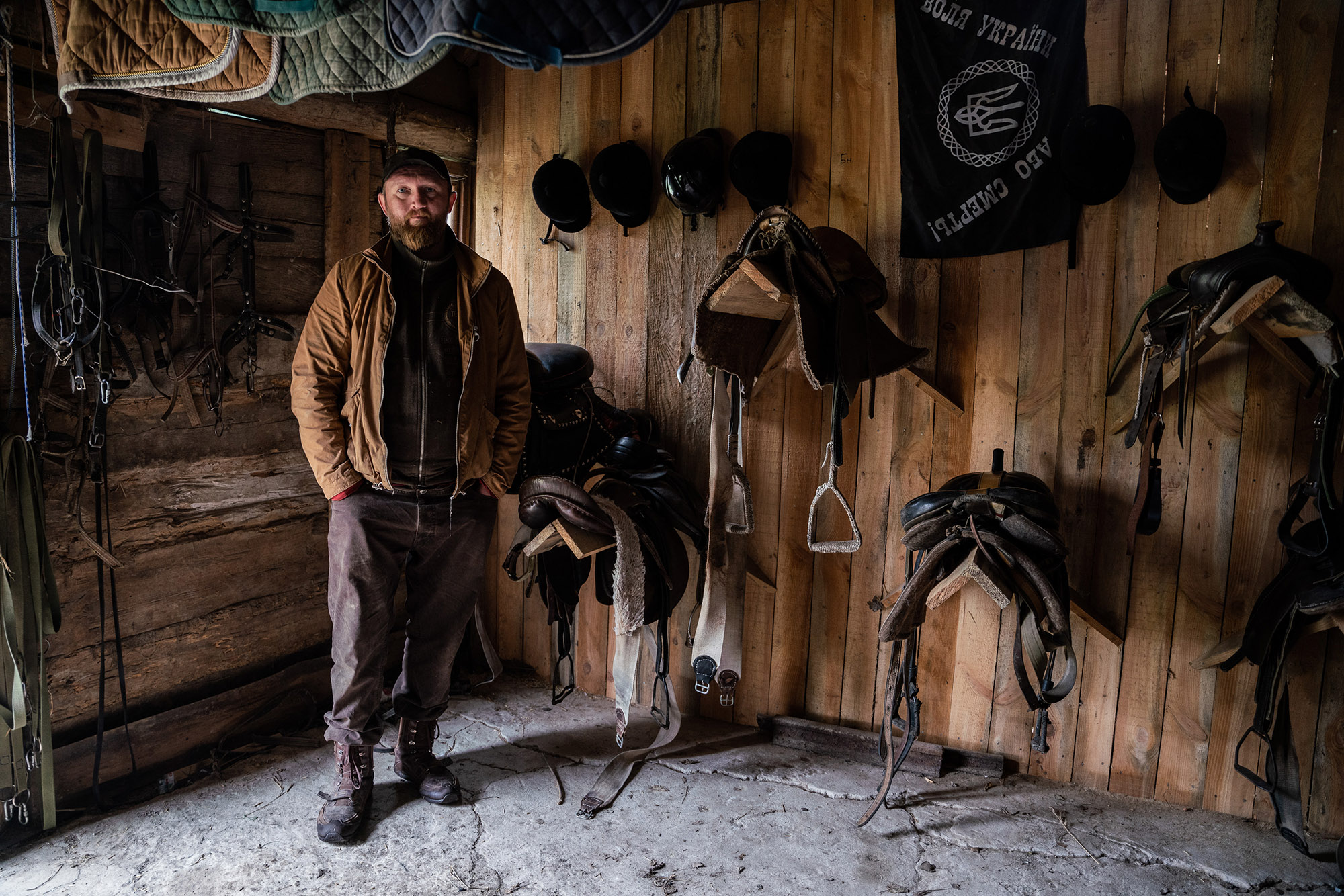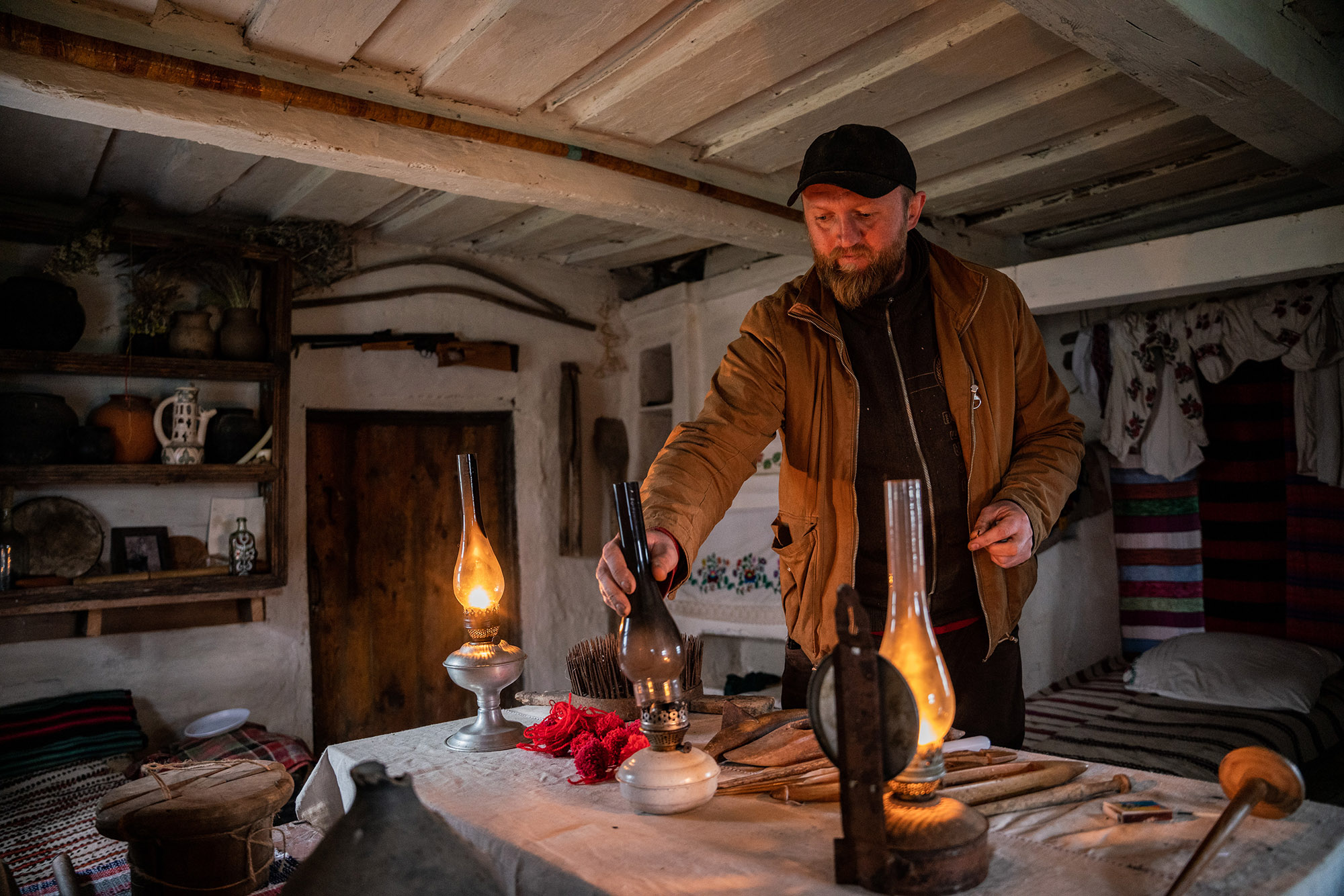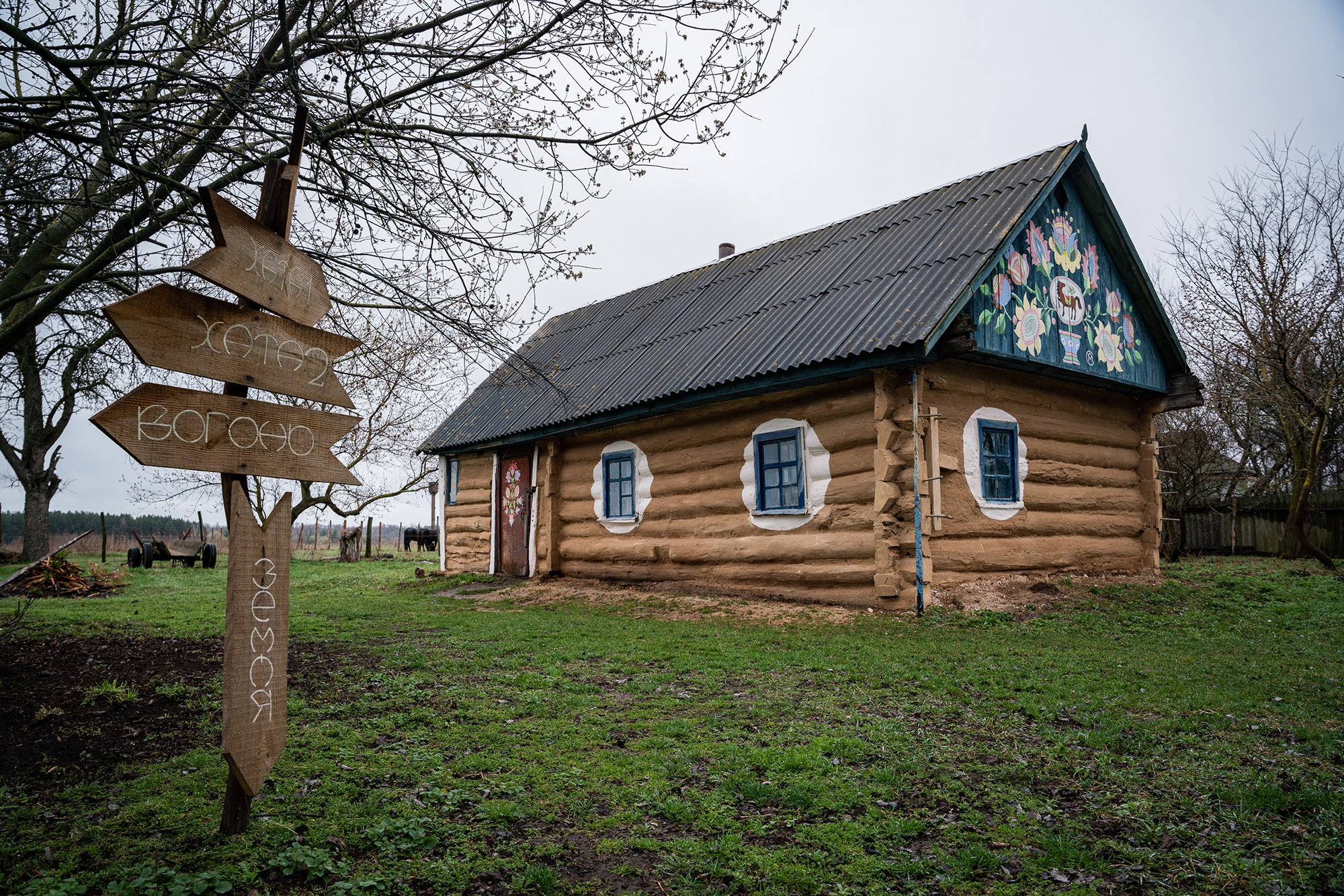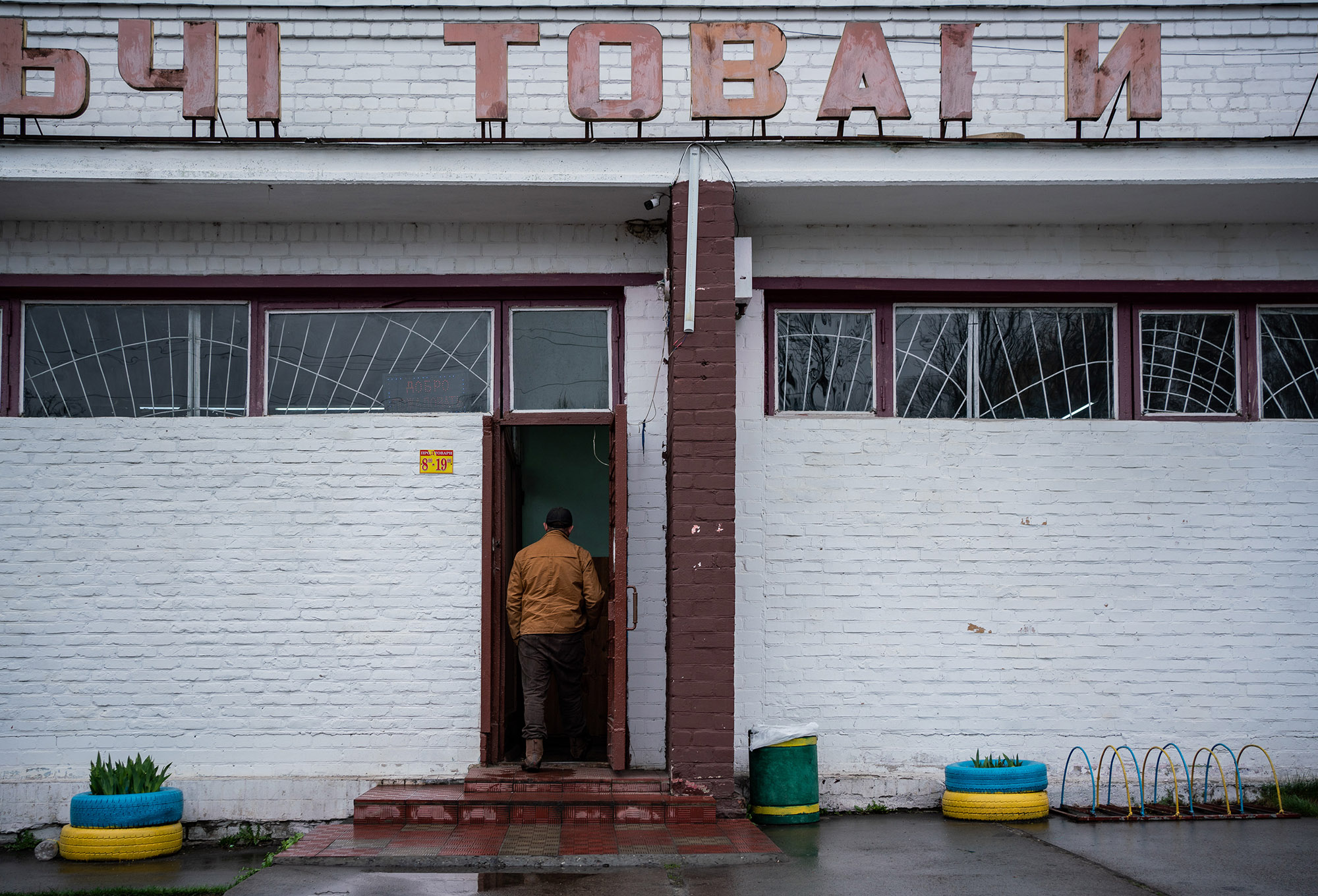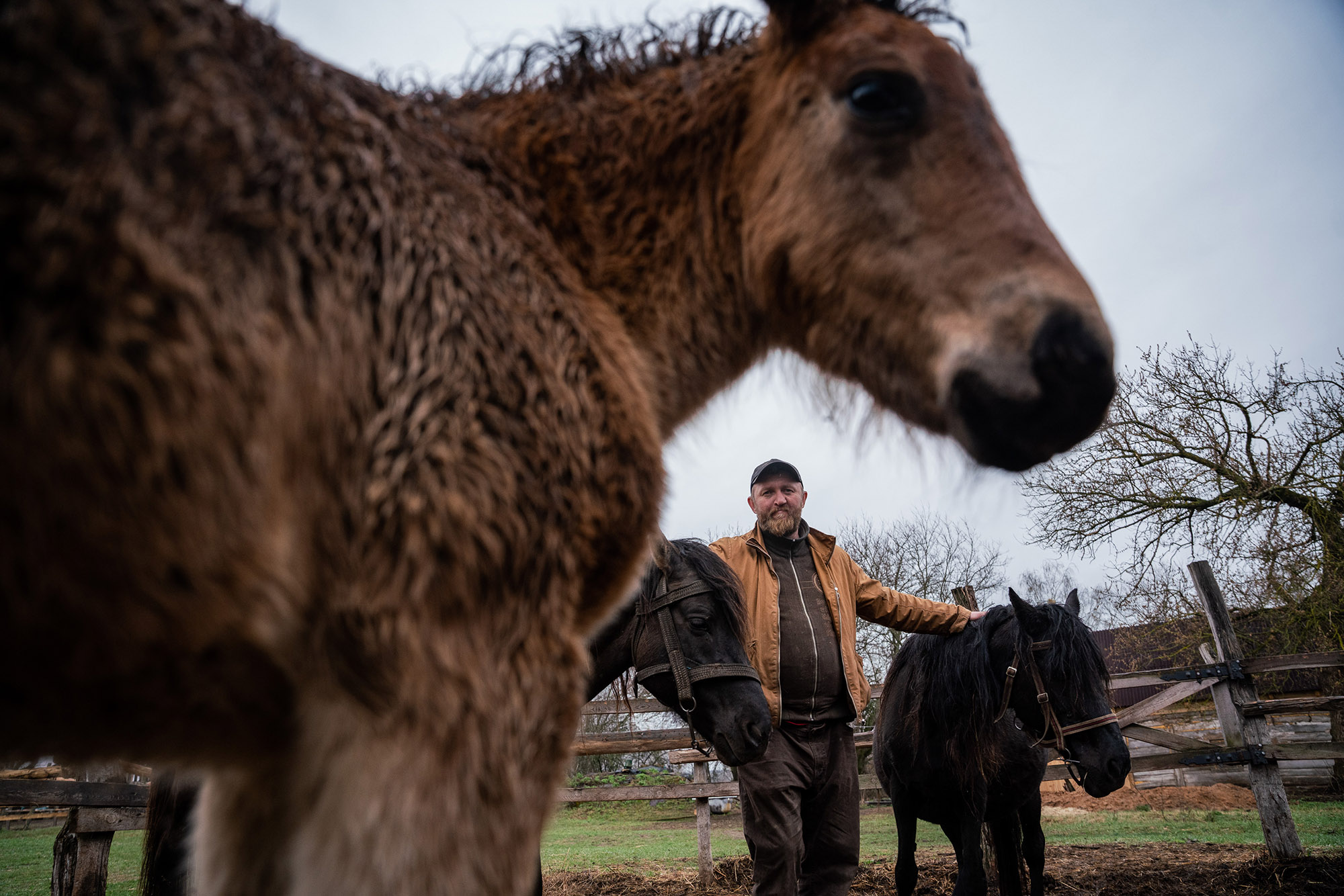
Horses and People
“I woke up at night, and looked out of the window—I thought someone’s house was on fire. Went outside with my walking stick, because it was terribly icy and slippery. A neighbor was passing by, so I asked him what was on fire. He said it was Yuri’s hayloft. They’ve burned it down twice now. Can you imagine? Are the horses to blame? Now he is installing video surveillance. My guess is that he is at loggerheads with someone. Apparently, some people from out of town got to him, not the locals,” says a woman holding a bag in her hands.
Having got off the Kyiv-Chornobyl minibus, I walk with her along the frozen road from the highway to the village of Prybirsk in the Ivankiv district of the Kyiv region. She is a neighbor of Yuri Yahusevych, who moved here from Kyiv 13 years ago. Yuri breeds Polissia horses in order to preserve the species. There is a meadow near the village that he registered as a reserve. Last year, they started the illegal digging of a canal from the local riverbed that cuts through the reserve to connect it to the mansion of a local money-bag. Yuri protested against it, and filed a complaint with the police. So they set Yuri’s hay on fire, twice.
The meadow
“If you want to be talked about, set your hay on fire. Yeah, right! The locals say: ‘He must have set it on fire himself. And he made money on it.’ I guess they calculated how much people were sending to my account. And later I realized: they never buy anything—they take everything from nature. They go to the forest and cut the trees down. And I spent 60,000 on materials alone to construct a new hayloft. Our mentalities are different. And as to those who set it on fire. . . It is obvious the locals did it. I even know who it was. But no one would admit to it here. Everyone is related, it’s a small village,” Yuri says, politely greeting the neighbor by his stable.
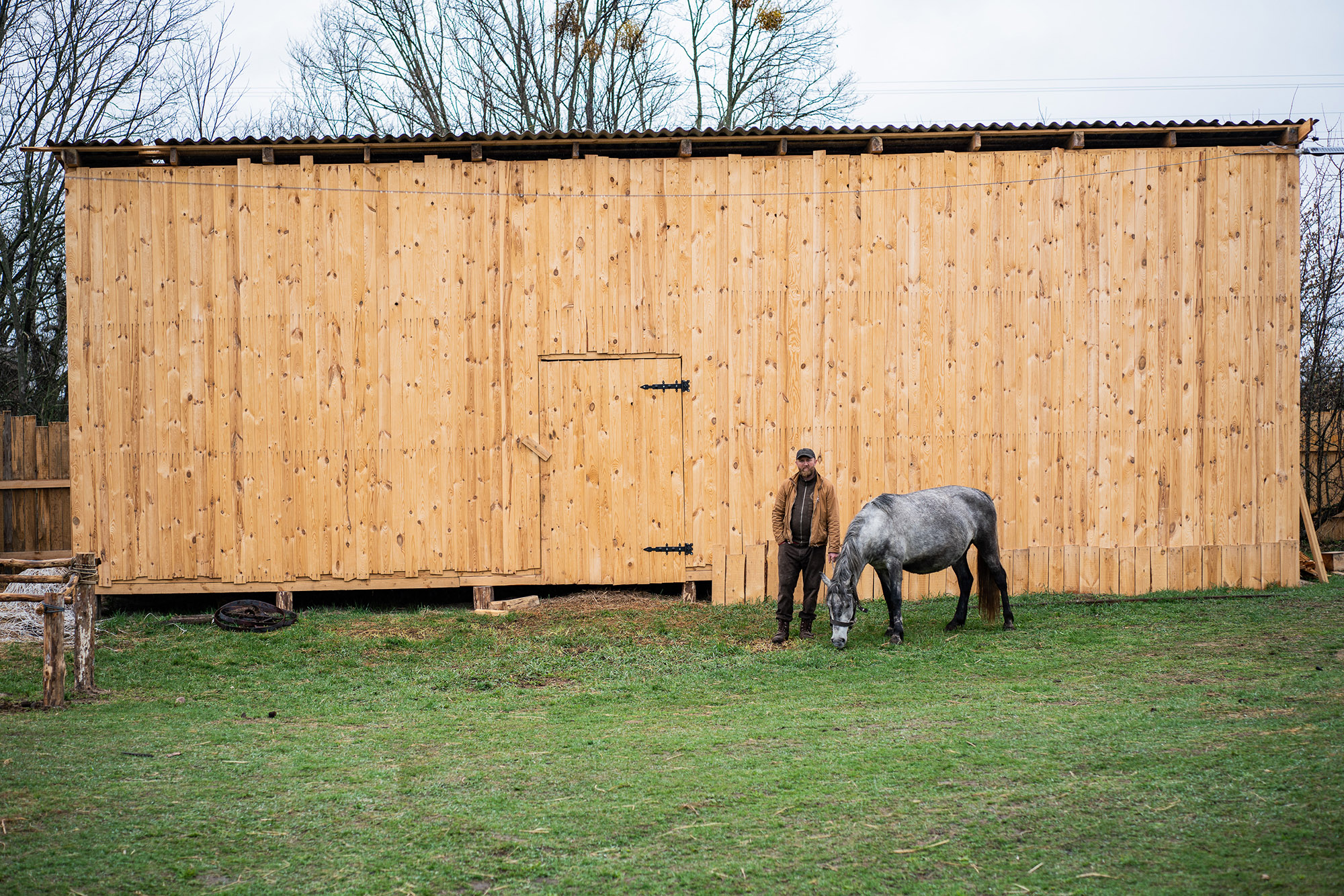
The neighbor told me in advance that Yuri’s place is always fun. Fun in a good way—lots of guests visit his place, but everything is neat, and nobody gets drunk.
“Let him do what he wants. Let people live the way they want to,” she added.
Some friendly words. Yuri is also friendly to his fellow villagers.
“You can see me greeting everyone, I talk to the people. Except for a few.”
That is true. I understand it after we go together to a lovely elderly couple for some home-made cheese, after Yuri helps a neighbor open his gate that was frozen shut, after he has a word with a liquored up man in the middle of the street.
“These people are good. Until you start arguing with them—for electrofishing, for the garbage they take there,” he points to the forest.
The newcomer is too much of a do-gooder, according to the locals in Prybirsk. It is a weakness here. Yuri reproaches for the indifferent attitude to nature. In the fall, he noticed the work being carried out on the riverbed, took some pictures of the working equipment with his camera, posted them on a social network, and filed a complaint. The police arrived. Environmentalists arrived.
“The environmentalists said that they receive ten calls a month about the same violation—people digging canals to their houses. So I interfered with someone’s plans. As I was told, the locals had promised to drown me or set me on fire. As if that would scare me. Yet, they did commit arson.”
And what about the police? When they started digging the meadow on the other side of the river last summer, Yuri filed a report with the police. But there has been no response as of yet.
“Our police do nothing. And nothing they will. It’s an illusion that something has changed since the reform. Hence the despair, because there is no use complaining.”
As to the locals. . . Most remain neutral, fearing payback. Mostly they support Yuri on the quiet: I support you, but you have to understand. . .
“Some say: ‘If I openly support you they will burn some of my stuff tomorrow.’”
This is Polissia for you. From time immemorial, people here are used to the abundance of forests, and think they can pull fish out of rivers with nets for the rest of their lives. They used to throw garbage anywhere, for it was organic.
“When I see someone throwing garbage I start explaining calmly: ‘Can you really not spare UAH 15 a month for garbage removal? A car will come right to your yard and take it away. Whereas to take the garbage out into the woods you need to fill the tank of a walk-behind tractor or borrow a horse from a neighbor.’ When they catch me in a bad mood, I can even swear at them: ‘You’re a fucking idiot! Why the fuck would you throw that shit here? It will fly right back to your garden, and then you will have to pick it up.’ But there is no way to make them understand. Nothing will change until the state starts fining people. And when I file a complaint about someone in particular, I am an ‘asshole’ and an ‘enemy.’ But sooner or later they will have to deal with all that plastic. Before, they never gave a damn about the digging. And the other day, I talked to a local drunk, and he said: ‘Oh dear, because of that digging I have no water in my well.’”
“The locals think: there is water in my well, there are potatoes in my garden, I have planted tobacco, I have collected firewood from the forest. And I don’t give a shit about anything else that is going on around me.
And when the water goes, so will their independence, and suddenly they won’t be so carefree,” Yuri mocks the locals as we walk down the main street of the village.
I turn my head to the right and gasp. Behind a steep cliff lies a wide valley—a reserve, the largest meadow in Ukraine, from Radomyshl in the Zhytomyr region to the Kyiv Sea, 250 hectares. Since the very beginning, Yuri was afraid that this beauty would be turned into a rapeseed field. To protect the meadow from canal digging, he came up with the idea of creating a reserve—that is a long story involving the lustration of the previous head of the village, who gave permission to use these lands for agricultural purposes. There was even a leaseholder.
The creation of the reserve was preceded by Yuri’s friendship with Leonid Kanter, the founder of the Obyrok Art Island in the Chernihiv region. Leonid also supported the creation of a reserve in Obyrok, but never got a chance—he took his own life two years ago having returned from the war. Whereas Yuri’s dream came true.
“In 2016, after consultations with Leonid, we decided to hold a festival here to raise awareness of the topic and create a reserve for this purpose. We had to campaign the village council for the festival.”
Some of the villagers opposed the idea.
“The locals comment: ‘They come here and start fucking around.’ In short—the usual bullshit,” Yuri says.
Yet, the festival took place. Environmentalists arrived, compiled a report about the unique nature of the meadow, and the village council voted for the reserve. But. . .
“It took so much effort! Here they think that once the local authorities voted—the reserve was created there and then. But that’s not how it is done. The regional council had to vote, too. And 99% of the councilmen do not want to do it—to understand what it is about, to burden themselves. So it was a long process finding someone who would vote at the regional level. It was such a hassle just to stop some local asshole from building himself a wharf.”
Horses
The Prybirsk meadow and garbage is a small but very typical episode from life in Chornobyl Polissia. How is it changing? Yuri knows, because he has seen it all while horseback riding within a 30-kilometer radius from here.
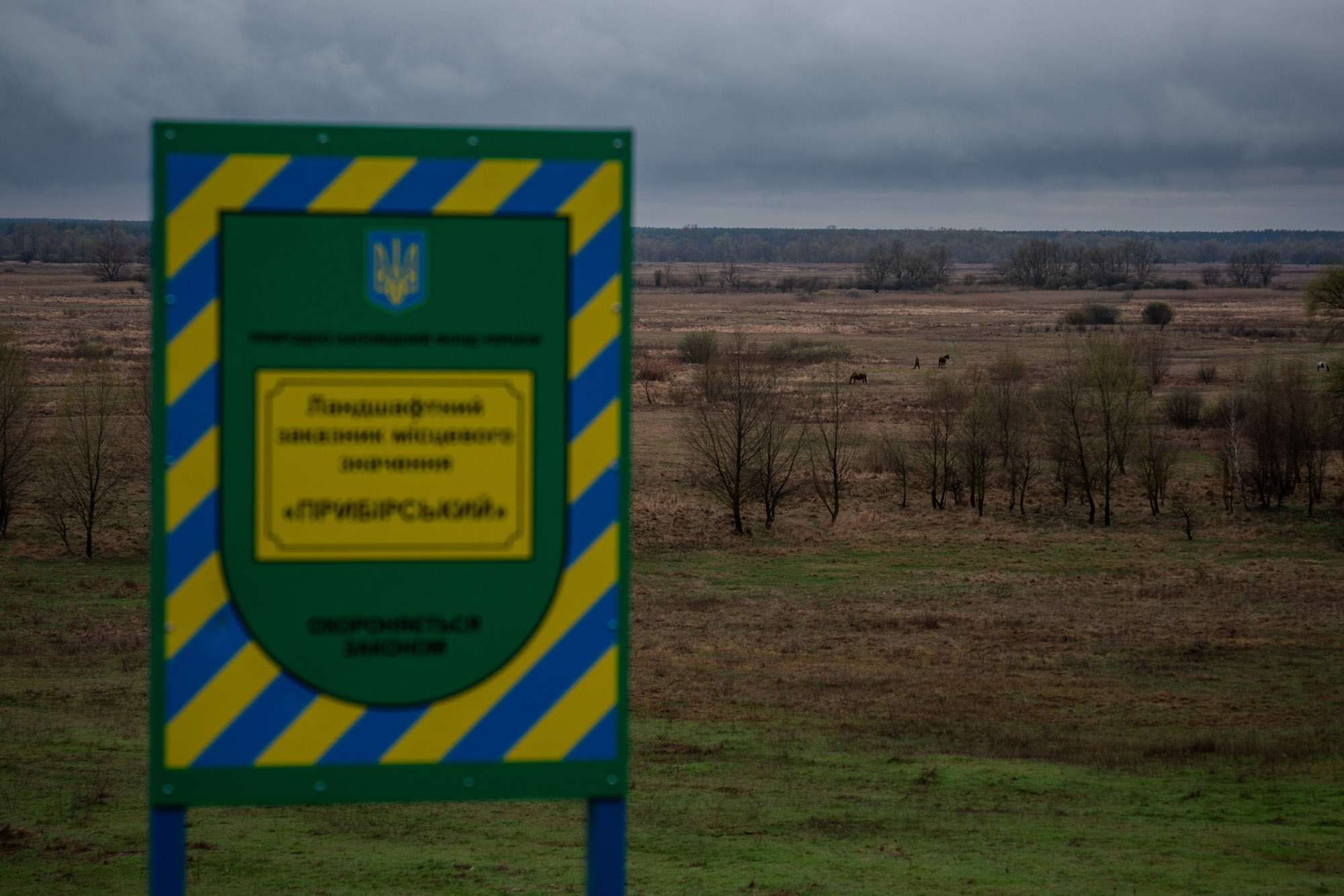
“Everything is drying up and collapsing,” he says. “The groundwater level has dropped by five meters—that’s a lot. In some places the river has simply disappeared. We can traverse places on horseback that were impassable in the past. That’s why the eternal virgin forest was preserved there, because there was no road to take you beyond the swamps. Now, I’m afraid that in one more year the timber trucks will come knocking. Here in Prybirsk they plowed the lands above the river. When the time comes, the river will flood and wash away the pesticide-contaminated areas. The chemicals will float to the Dnieper, from which a third of Ukraine gets its drinking water. And then they want the Dnieper to stay clean of blooming and habitable for fish.”
In order for the Dnieper to stay clean and habitable for fish, Polissia horses are needed—which are endemic to this land. It is an interconnected chain that shapes the ecosystem.
The main food of the Polissya horse is marsh grass, which is abundant here. Thereby, says Yuri, even-toed ungulates cleaned large Ukrainian rivers at their sources, and they carried clean water to the south.
Now the horses no longer clean the rivers. The breed almost disappeared with the advent of collective farms. Yuri’s Shcherbati Tsugli stable is the only place in Ukraine where they are bred. At the end of last year, a state project to resurrect the Polissya horse breed at Tsugli was approved. Scientists and other specialists were involved in it.
The Polissya breed is short.
“Stretch your leg up, and you’re already on the horse,” Yuri introduces his wards. “That one is skinny, like a bicycle. Be careful with this one, she is pregnant. And the one over there was brought the day before yesterday.”
The animals are standing in a paddock. One is pinching some hay, another has taken an interest in me, nudging my hand. These horses were bought mainly in the Zhytomyr region. Yuri is known to all the local butchers and dealers—they call him immediately when someone is trying to get rid of a horse.
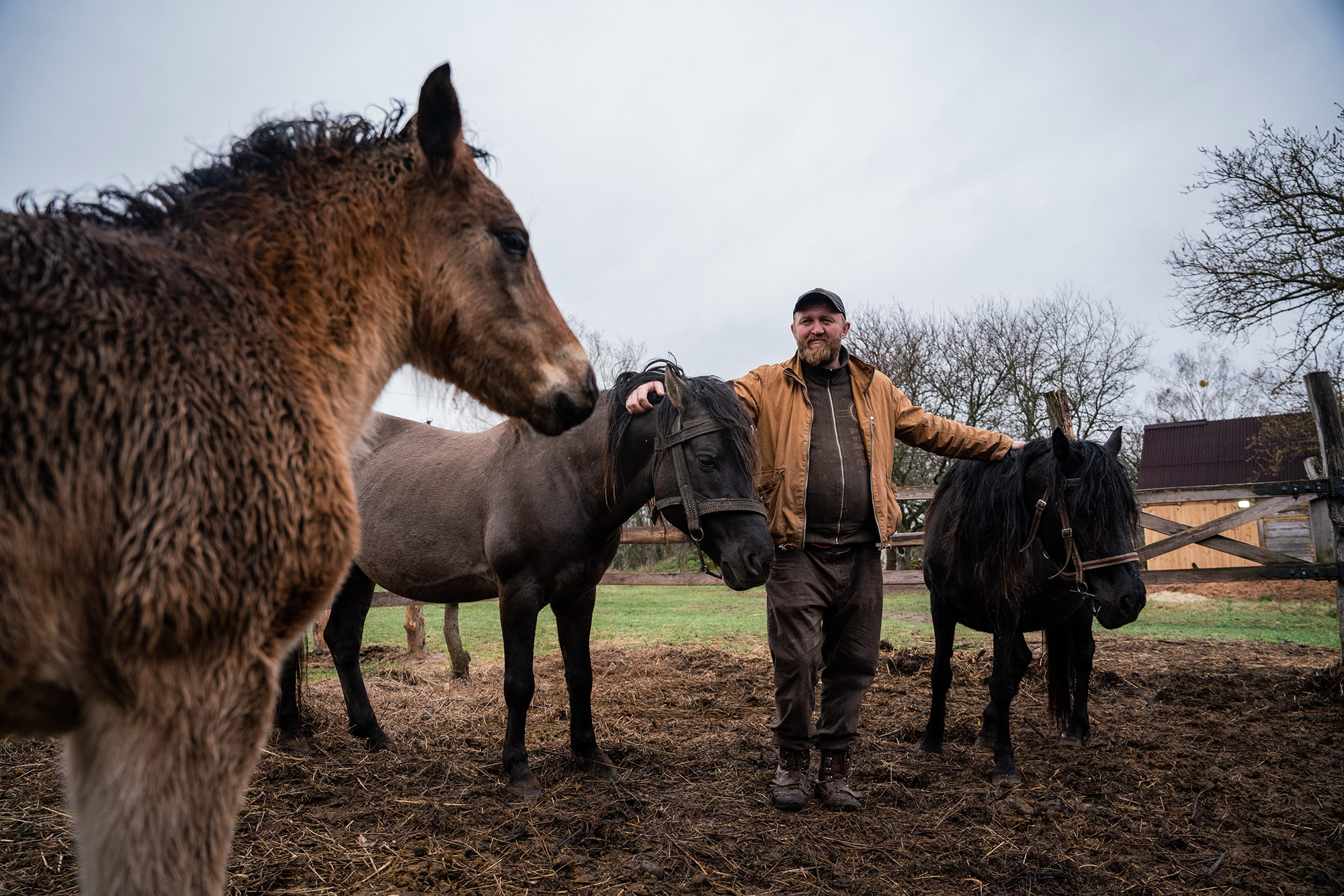
Yuri’s story with the horses began a few years ago.
“I wanted to sell my horse. And then I thought: you have to go on one last ride. I rode the horse for two days. And realized what a beauty he was. And I decided not to sell him, but to buy another one. Because it’s boring to ride alone, much better with company. And then I learned that there are horses of the Polissia breed.”
Why would Yuri breed Polissya horses? First, to preserve the species and release them into nature reserves. Second, to legalize the breed through the Institute of Genetics. Then the Polissya horse must receive international recognition and pass certification to become official.
After that, these horses will be able to live in stables across the region. They are good for hippotherapy and children’s equestrian sports, because they are small and calm.
“Previously they were used in agriculture. The horse is small so it eats less while doing the same job. It can easily endure the winter outside, pulling hay from under the snow.”
Once upon a time, this horse was a member of almost every Polissia family. They rode on this horse everywhere. Even in Rivne Polissia, they guided a horse door to door on Malanka instead of a goat. Before a wedding took place, a horse was brought to the house. It had to poop there. If it didn’t do its business, this meant the bride was not chaste.
“But during the Soviet Union an order was given to replace the Polissia horse with large draft breeds. The smarter heads in some collective farms thought it was more profitable to keep the Polissya breed. In those areas, their livestock is best preserved,” Yuri explains.
It is also possible to try taking from the Polissya horse the genes of the tarpan—a wild horse that disappeared 150 years ago. They lived side by side, and the probability of breed mixing was high.
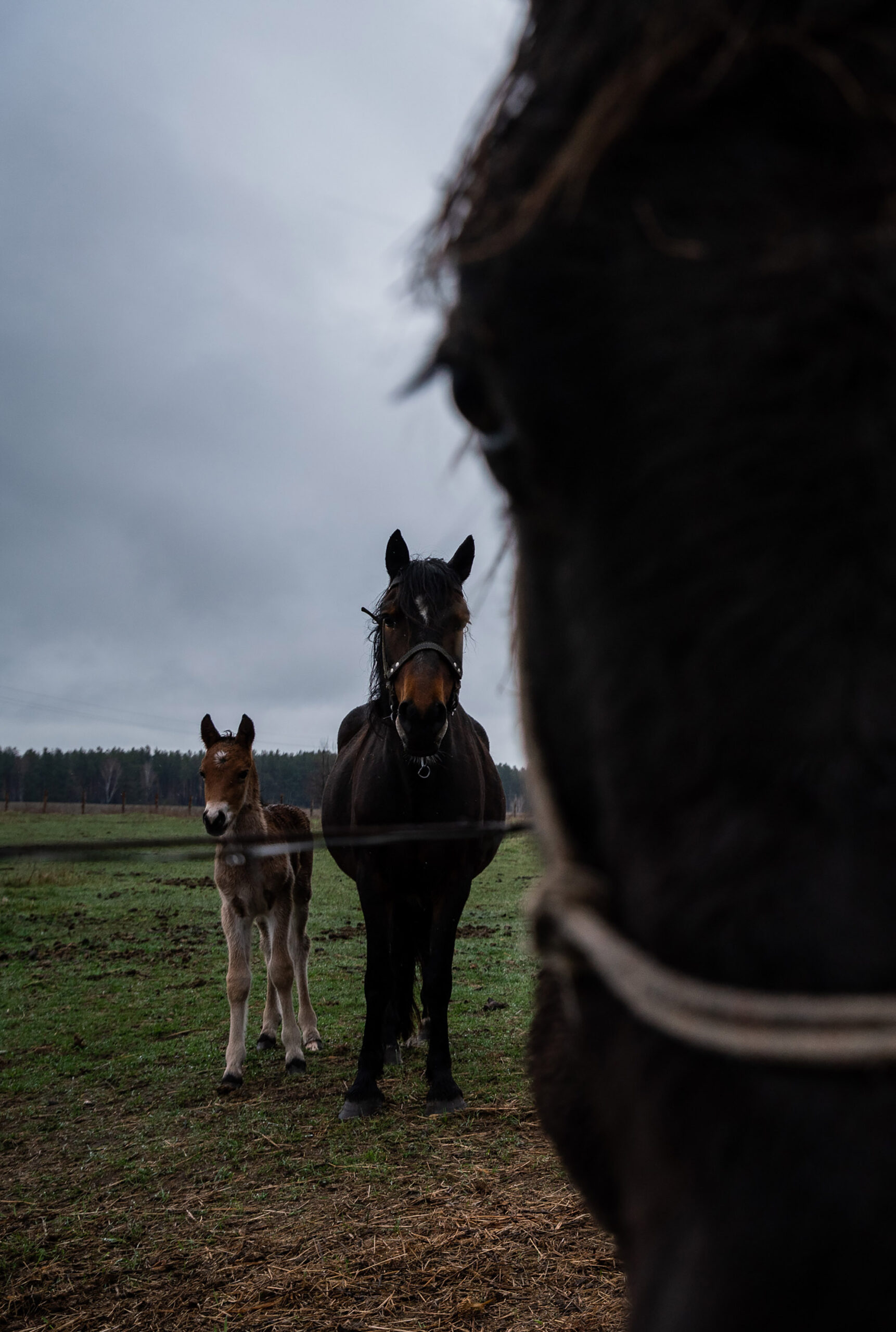
The goal of Yuri’s project is to breed at least 60 Polissya horses. He is now working with a collective farm in Belarus, where the stallion is kept. There are plans to bring the stallion from there to mix blood for better offspring.
However, he is worried about where to release them later. It would not be appropriate to release them in the Chornobyl zone—Przewalski’s horses will make hybrids there, and the breed will not survive. So Yuri is looking for another place. A reserve would be the best.
Argentina
The horses are partly self-sustaining—Yuri organizes tourist trips across Polissya on them. Guests live in a wattle and daub hut across the street from the stable. In another house in the yard is a museum of items he found in Prybirsk and the neighboring villages.
“I bought this old wattle and daub for ten jars of honey. At first it was impossible to even approach it, and one could not see the hut behind the weeds. Don’t take that picture,” he says as I point the lens at the beautifully painted door. “It was covered with artificial leather, like in the Soviet days. I want to change it to wooden. Previously, everything here was ‘pretty’—upholstered with plasterboard. I took it all off— and the place turned traditional,” Yuri says, stepping into the hallway.
In his museum, there is a loom exchanged for a jar of honey, a lamp exchanged for a bottle of vodka, an icon for a guitar ‘combo,’ a rare pre-war wooden saddle, and some glass paintings.
“Bet no one else has such a cat. Previously there were no posters with Tymoshenko (Yulia Tymoshenko, a Ukrainian politician—R.) and Rambo. People hung up this kind of stuff.”
From the corner, a painted gray cat-wolf with a bouquet in its paws looks at us menacingly.
Another cat, a living one this time, sinks its claws into my leg while we are sitting in Yuri’s house a few hundred meters down the main street. The man expanded an old wattle and daub house, and added the second floor. He took root here. It all started 13 years ago.
“I grew up in a village in the Vinnytsia region. Then I lived in Kyiv. Had a job in design and desktop publishing. Work-work-work, money-money-money, renting an apartment. Returning from work every day to my four walls. I got sick of it all. I wanted to go to a village. But not some summer community near Kyiv—I wanted proper nature while still being not too far from the capital. This direction was unpopular because everyone was scared of Chernobyl. This place was completely wild then! So I moved here. I thought I would go to work in Kyiv from here, rather than plant a garden. I would rather buy some potatoes. And then came the crisis in 2008. There was no longer a job for me in design. No way to make money. So I had to plant a garden. And then I got bees, goats, and horses. I learned to make money here—I help install windows, and sell my honey. I made a kobza, started playing it and realized that I could go to festivals.”
He says he used to be attached to this house because it took him a long time to build it. But then he travelled a lot, looked around. Now he knows: there are much more interesting places. It is good here, but the meadow will most likely be plowed. And the horses should be released into a reserve. It is impossible to set them free here, even if a reserve is created for them, for the locals will poison them all anyway. They would better plow that meadow than let the horses graze on it. So he needs to find people who are interested in this. There are many of them. He just has to find them.
And then, maybe, Argentina. This is Yuri’s dream. If he liked it there, he would stay —in the least populated area that is habitable.
“I like nature. Music and nature. And people? I think I can do without them.
Although, when I counted how many days in 2019 I lived in the house alone, it turned out only one week. There is always someone spending the night here, sometimes even groups. I communicate with people, but I can do without them just fine. Most of all I like walking in nature and waiting for what happens next. Then you forget that there are people at all. But we no longer have such places.”
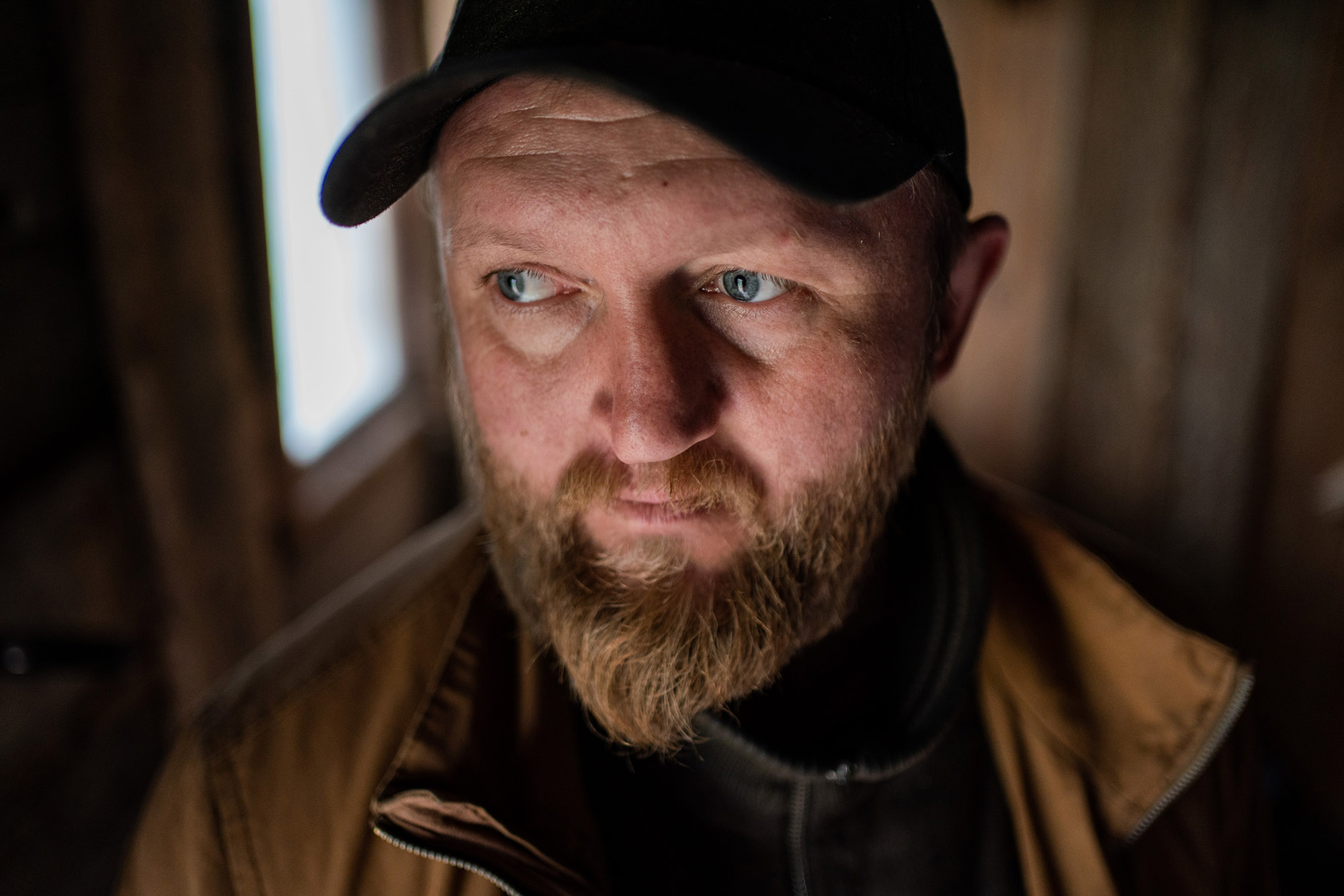
Argentina is the dream, but USD 3,000 of debt is the reality. After the first act of arson, donations came in strong. When the required amount was raised, Yuri called a stop on the donations. But the second act of arson and new hay costs came soon after. And then he had to repair the old house near the stable, to install servers for surveillance cameras and to connect them to the internet.
“I could have given up. But what would life be like then? No fun,” Yuri adds. “They burned the hayloft in the middle of winter, before New Year. No thoughts, no time to despair. There is simply a problem that needs to be solved. Because the morning will come, and the horses will need to eat again.”
[This publication was created with support of the Royal Norwegian Embassy in Ukraine. The views and opinions expressed in this publication are those of the authors and do not necessarily reflect the official position of the Norwegian government.]
Have read to the end! What's next?
Next is a small request.
Building media in Ukraine is not an easy task. It requires special experience, knowledge and special resources. Literary reportage is also one of the most expensive genres of journalism. That's why we need your support.
We have no investors or "friendly politicians" - we’ve always been independent. The only dependence we would like to have is dependence on educated and caring readers. We invite you to support us on Patreon, so we could create more valuable things with your help.
Reports130
More





